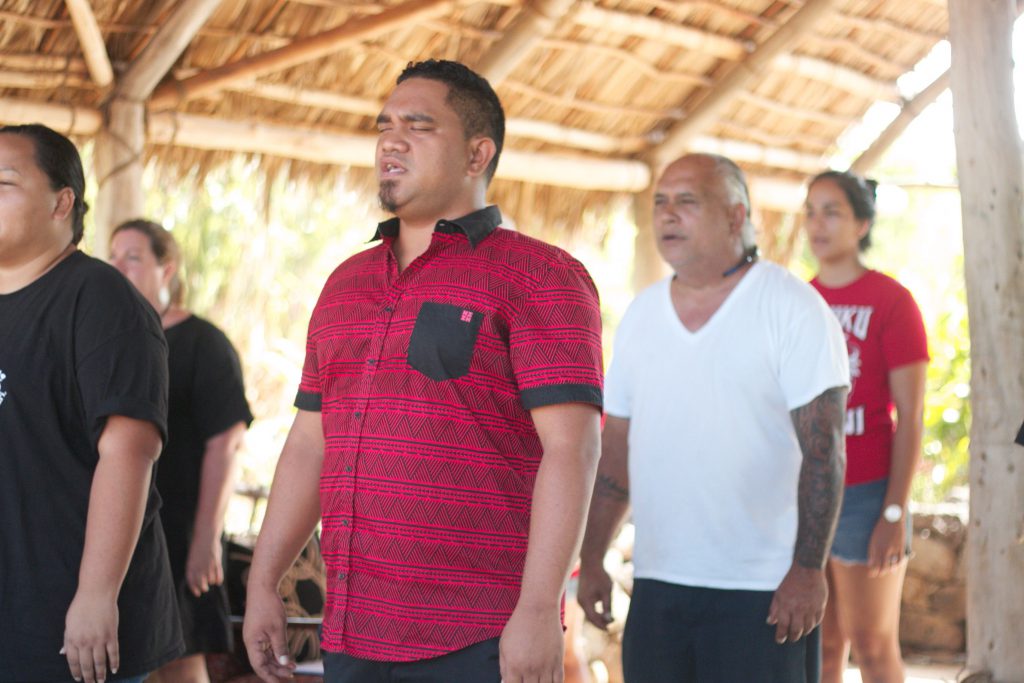
Piko on Aug. 21, 2017.
Students, faculty and staff are invited to piko, a weekly gathering at Hale Kuahuokalā at 9 a.m. Mondays which is intended to help people center their thoughts and compose themselves for the week.
“The point of having piko each Monday morning is to reflect through oli/mele- chanting or song and quiet meditation so that we can prepare ourselves for the day and week,” said Puʻu Zablan, a UH West Oʻahu junior specialist and PIKO Project coordinator.
“We are putting aside all things that happened before- our worries, issues, struggles and in a way starting a new. This is also a time to connect to our environment and to the greater being we believe in.”
Piko at start of fall 2016 semester
Piko was started about a year and a half ago as a way for the campus to come together at least once a week and have a time when people could meditate and reflect as a UH West Oʻahu family, Zablan noted. He said such gatherings are done at Windward Community College, the University of Hawaiʻi at Hilo, the University of Hawaiʻi at Mānoa and at Hawaiian charter and Hawaiian language immersion schools.
Zablan explained that in Hawaiian tradition the piko poʻo at the top/crown of head is our own spirit or ʻuhane that is connected to the spirit realm, our ʻaumakua or family guardians and ancestors. The piko waena at the navel/umbilical cord is our connection to our kupuna- elders and makua- our parents in this contemporary world. The piko maʻi at our genitals is our connection to our future, our children and the many generations to come- procreation.
“When these three piko are balanced or aligned, then we are likely to be more harmonious and in-sync,” he said.
According to Tiana Henderson, PIKO Project program coordinator, piko typically lasts 10 to 15 minutes and involves hoʻokupu (an offering, usually a lei and water) to the kuahu (altar) as a physical symbol of respect, gratitude and appreciation. The group also centers their thoughts with oli/mele (chanting or singing).
Zablan said attendance varies between a handful of people to more than 20, with at least 10 attending for most gatherings. About five faculty and staff lead piko, but others are sought to lead it. “We are open to having different kinds of ways in preparing our body, minds, and spirit toward being balanced,” he said.
